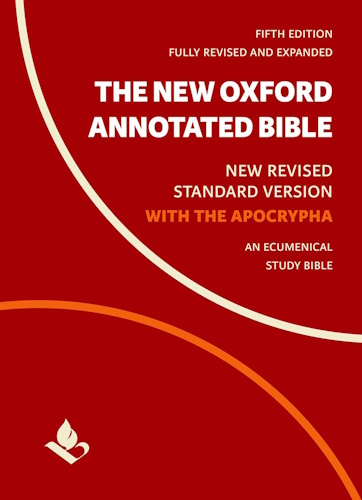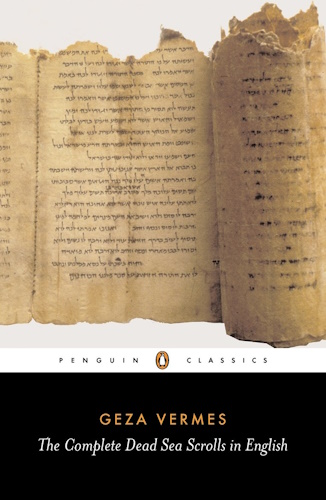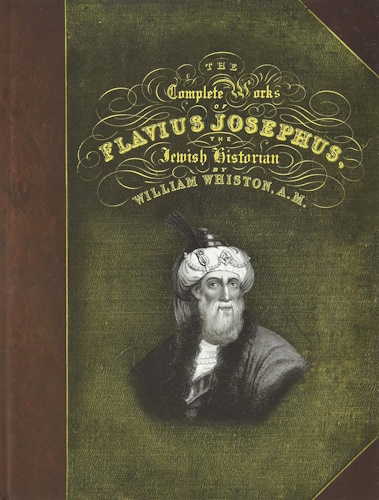
 |
The WorksofFlavius JosephusWilliam Whiston, Translator
|
Josephus was born Joseph ben Mattathias in 37 C.E. in Jerusalem of a priestly and royal family. He excelled in his studies of Jewish law and studied with the Sadducees, Pharisees, and the Essenes, eventually aligning himself with the Pharisees. In 62 C.E. he went to Rome to free some imprisoned priests. After accomplishing this mission through the intercession of Nero's wife, Poppaea, he returned to Jerusalem in 65 C.E. to find the country in revolt against Rome.
Although Josephus had deep misgivings about the revolt, it became inevitable, due to reasons he discusses in his history, primarily the abuses of the Romans; this spurred the growth of fanatical Messianic Jewish movements which believed that the world was coming to an end shortly. In 66 C.E. the Masada was seized by the Zealots and the Romans were on the march; Josephus was appointed the commander of Galilee.
Josephus had to fight a defensive war against overwhelming force while refereeing internecine squabbles in the Jewish ranks. In 67 C.E. Josephus and other rebels were cornered in a cave during the siege of Jotapata and took a suicide pact. However, Josephus survived, and was taken hostage by the Romans, led by Vespasian.
Josephus shrewdly reinterpreted the Messianic prophecies. He predicted that Vespasian would become the ruler of the 'entire world'. Josephus joined the Romans, for which he was branded a traitor. He acted as consultant to the Romans and a go-between with the revolutionaries. Unable to convince the rebels to surrender, Josephus ended up watching the second destruction of the Temple and the defeat of the Jewish nation.
His prophecy became true in 68 C.E. when Nero committed suicide and Vespasian became Ceasar. As a result, Josephus was freed; he moved to Roman and became a Roman citizen, taking the Vespasian family name Flavius. Vespasian commissioned Josephus to write a history of the war, which he finished in 78 C.E., the Jewish War. His second major work, the Antiquities of the Jews, was completed in 93 C.E. He wrote Against Apion in about 96-100 C.E. and The Life of Josephus, his autobiography, about 100. He died shortly after.
Despite his ambivalent role, Josephus was an eyewitness to history, and his writings are considered authoritative. These texts are key to understanding a pivotal point in world history, which has tragic repercussions even to this day.
--J.B.H.
The Life of Flavius Josephus - Autobiography
Antiquities of the Jews
Preface to the Antiquities of the Jews
Book I: From Creation to the Death of Isaac
Book II: From the Death of Isaac to the Exodus out of Egypt
Book III: From the Exodus out of Ehypt to the Rejection of the Generation
Book IV: From the Rejection of that Generation to the Death of Moses
Book V: From the Death of Moses to the Death of Eli
Book VI: From the Death of Eli to the Death of Saul
Book VII: From the Death of Saul to the Death of David
Book VIII: From the Death of David to the Death of Ahab
Book IX: From the Death of Ahab to the Captivity of the Ten Tribes
Book X: From the Captivity of the Ten Tribes to the First Year of Cyrus
Book XI: From the First Year of Cyrus to the Death of Alexander the Great
Book XII: From the Death of Alexander the Great to the Death of Judas Maccabeus
Book XIII: From the Death of Judas Maccabeus to the Death of Queen Alexandra
Book XIV: From the Death of Queen Alexandra to the Death of Antigonus
Book XV: From the Death of Antigonus to the Finishing of the Temple by Herod
Book XVI: From the Finishing of the Temple by Herod to the Death of Alexander and Aristobulus
Book XVII: From the Death of Alexander and Aristobulus to the Banishment of Archelaus
Book XVIII: From the Banishment of Archelaus to the Departure of the Jews from Babylon
Book XIX: From the Departure of the Jews from Babylon to FAdus the Roman Procurator
Book XX: From Fadus the Procurator to Florus
War of the Jews
Preface to the War of the Jews
Book I: From the Taking of Jerusalem by Antiochus Epiphanes to the Death of Herod the Great
Book II: From the Death of Herod till Vespasian was sent to subdue the Jews by Nero
Book III: From Vespasian's coming to Subdue the Jews to the Taking of Gamala
Book IV: From the Siege of Gamala to the Coming of Titus to besiege Jerusalem
Book V: From the Coming of Titus to besiege Jerusalem to the Great Extremity to which the Jews were reduced
Book VI: From the Great Extremity to which the Jews were reduced to the taking of Jerusalem by Titus
Book VII: From the Taking of Jerusalem by Titus to the Sedition of the Jews at Cyrene
Flavius Josephus Against Apion
Josephus's Discourse to the Greeks concerning Hades
![]()
![]()
Disclaimer:
Some material presented will contain links, quotes, ideologies, etc., the contents of which should be understood to first, in their whole, reflect the views or opinions of their editors, and second, are used in my personal research as "fair use" sources only, and not espousement one way or the other. Researching for 'truth' leads one all over the place...a piece here, a piece there. As a researcher, I hunt, gather and disassemble resources, trying to put all the pieces into a coherent and logical whole. I encourage you to do the same. And please remember, these pages are only my effort to collect all the pieces I can find and see if they properly fit into the 'reality aggregate'.
Personal Position:
I've come to realize that 'truth' boils down to what we 'believe' the facts we've gathered point to. We only 'know' what we've 'experienced' firsthand. Everything else - what we read, what we watch, what we hear - is what someone else's gathered facts point to and 'they' 'believe' is 'truth', so that 'truth' seems to change in direct proportion to newly gathered facts divided by applied plausibility. Though I believe there is 'truth', until someone representing the celestial realm visibly appears and presents the heavenly records of Facts And Lies In The Order They Happened, I can't know for sure exactly what "the whole truth' on any given subject is, and what applies to me applies to everyone. Until then I'll continue to ask, "what does The Urantia Book say on the subject?"
~Gail Bird Allen
![]()
![]()
-
Urantia Book, 44:0.11 - The Celestial Artisans
Never in your long ascendancy will you lose the power to recognize your associates of former existences. Always, as you ascend inward in the scale of life, will you retain the ability to recognize and fraternize with the fellow beings of your previous and lower levels of experience. Each new translation or resurrection will add one more group of spirit beings to your vision range without in the least depriving you of the ability to recognize your friends and fellows of former estates.
-
Princess Bride 1987 Wallace Shawn (Vizzini) and Mandy Patinkin (Inigo Montoya)
Vizzini: HE DIDN'T FALL? INCONCEIVABLE.
Inigo Montoya: You keep using that word. I do not think it means what you think it means. -
Urantia Book, 117:4.14 - The Finite God
And here is mystery: The more closely man approaches God through love, the greater the reality -- actuality -- of that man. The more man withdraws from God, the more nearly he approaches nonreality -- cessation of existence. When man consecrates his will to the doing of the Father's will, when man gives God all that he has, then does God make that man more than he is.
-
Urantia Book, 167:7.4 - The Talk About Angels
"And do you not remember that I said to you once before that, if you had your spiritual eyes anointed, you would then see the heavens opened and behold the angels of God ascending and descending? It is by the ministry of the angels that one world may be kept in touch with other worlds, for have I not repeatedly told you that I have other sheep not of this fold?"
-
Urantia Book, Foreword - 0:12.12 - The Trinities
But we know that there dwells within the human mind a fragment of God, and that there sojourns with the human soul the Spirit of Truth; and we further know that these spirit forces conspire to enable material man to grasp the reality of spiritual values and to comprehend the philosophy of universe meanings. But even more certainly we know that these spirits of the Divine Presence are able to assist man in the spiritual appropriation of all truth contributory to the enhancement of the ever-progressing reality of personal religious experience—God-consciousness.
-
Urantia Book, 1:4.3 - The Mystery Of God
When you are through down here, when your course has been run in temporary form on earth, when your trial trip in the flesh is finished, when the dust that composes the mortal tabernacle "returns to the earth whence it came"; then, it is revealed, the indwelling "Spirit shall return to God who gave it." There sojourns within each moral being of this planet a fragment of God, a part and parcel of divinity. It is not yet yours by right of possession, but it is designedly intended to be one with you if you survive the mortal existence.
-
Urantia Book, 1:4.1 - The Mystery Of God
And the greatest of all the unfathomable mysteries of God is the phenomenon of the divine indwelling of mortal minds. The manner in which the Universal Father sojourns with the creatures of time is the most profound of all universe mysteries; the divine presence in the mind of man is the mystery of mysteries.
-
Urantia Book, 1:4.6 - The Mystery Of God
To every spirit being and to every mortal creature in every sphere and on every world of the universe of universes, the Universal Father reveals all of his gracious and divine self that can be discerned or comprehended by such spirit beings and by such mortal creatures. God is no respecter of persons, either spiritual or material. The divine presence which any child of the universe enjoys at any given moment is limited only by the capacity of such a creature to receive and to discern the spirit actualities of the supermaterial world.
-
Urantia Book, 11:0.1 - The Eternal Isle Of Paradise
Paradise is the eternal center of the universe of universes and the abiding place of the Universal Father, the Eternal Son, the Infinite Spirit, and their divine co-ordinates and associates. This central Isle is the most gigantic organized body of cosmic reality in all the master universe. Paradise is a material sphere as well as a spiritual abode. All of the intelligent creation of the Universal Father is domiciled on material abodes; hence must the absolute controlling center also be material, literal. And again it should be reiterated that spirit things and spiritual beings are real.
-
Urantia Book, 50:6.4 - Planetary Culture
Culture presupposes quality of mind; culture cannot be enhanced unless mind is elevated. Superior intellect will seek a noble culture and find some way to attain such a goal. Inferior minds will spurn the highest culture even when presented to them ready-made.
-
Urantia Book, 54:1.6 - True And False Liberty
True liberty is the associate of genuine self-respect; false liberty is the consort of self-admiration. True liberty is the fruit of self-control; false liberty, the assumption of self-assertion. Self-control leads to altruistic service; self-admiration tends towards the exploitation of others for the selfish aggrandizement of such a mistaken individual as is willing to sacrifice righteous attainment for the sake of possessing unjust power over his fellow beings.
-
Urantia Book, 54:1.9 - True And False Liberty
How dare the self-willed creature encroach upon the rights of his fellows in the name of personal liberty when the Supreme Rulers of the universe stand back in merciful respect for these prerogatives of will and potentials of personality! No being, in the exercise of his supposed personal liberty, has a right to deprive any other being of those privileges of existence conferred by the Creators and duly respected by all their loyal associates, subordinates, and subjects.
-
Urantia Book, 54:1.8 - True And False Liberty
There is no error greater than that species of self-deception which leads intelligent beings to crave the exercise of power over other beings for the purpose of depriving these persons of their natural liberties. The golden rule of human fairness cries out against all such fraud, unfairness, selfishness, and unrighteousness.



































